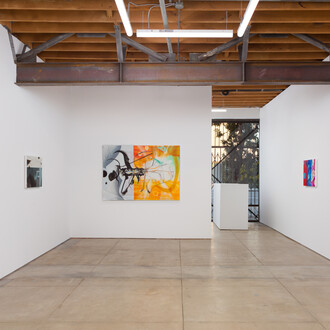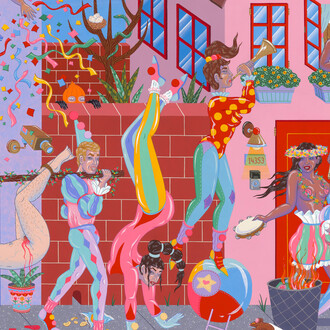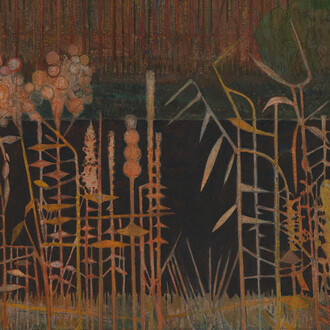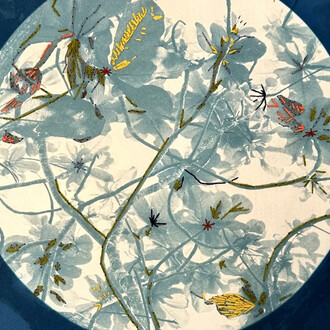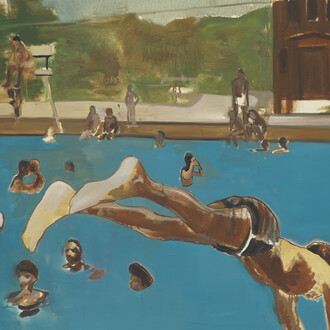George Washington Carver was a pioneer of plant-based engineering and one of the nation’s earliest proponents of sustainable agriculture. In the early 1900s, he built his Jesup wagon, a moveable school to share soil and plant samples, equipment, and other agricultural knowledge with farmers. Carver’s then-radical ideas—including organic fertilizers, crop rotation, and plant-based medicines and construction materials—are now recognized as the forerunners of modern conservation. A trained and practicing artist, Carver used sustainable materials such as peanut- and clay-derived dyes and paints in his many weavings and still-life paintings. World without end explores how contemporary artists and thinkers working today engage with Carver’s ideas and interests. Alongside contemporary artworks by thirty artists and artist collectives, the exhibition includes Carver’s rarely seen paintings, drawings, laboratory equipment, and notebooks. Both the exhibition and its forthcoming catalogue, which includes previously unpublished material documenting Carver’s life and work at Tuskegee University, reframe and center Carver’s lasting impact on art and science.
World without end includes works by Terry Adkins, Ash Arder, Kevin Beasley, Julie Beeler, Diedrick Brackens, Sheila Pree Bright, John Cage, Colectivo Cambalache (Carolina Caycedo, Alonso Gil, Federico Guzmán), Robert Colescott, Karon Davis, Abigail DeVille, Charles Gaines, Michelle Glass and Terrick Gutierrez, Mohamed Sleiman Labat, James Brandon Lewis and Red Lily Quintet, Candace Lin, Nour Mobarak, Mimi Ọnụọha, William Padilla-Brown, Alicia Piller, Judson Powell, Noah Purifoy, Linda Dounia Rebeiz, Sam Shoemaker, Tavares Strachan, Henry Taylor, Hana Ward, Jack Whitten, and Amanda Williams.
World without end: The George Washington Carver Project is co-curated by Cameron Shaw, Executive Director, and Yael Lipschutz, independent curator. This exhibition is made possible with support from Getty through its PST Art: Art & Science Collide initiative.





